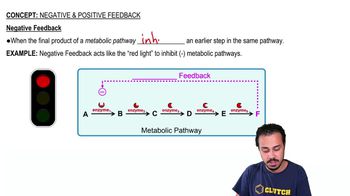The hypothalamus
a. Synthesizes all of the hormones produced by the pituitary gland.
b. Influences the function of only one lobe of the pituitary gland.
c. Produces only inhibitory hormones.
d. Regulates both reproduction and body temperature.
 Verified step by step guidance
Verified step by step guidance Verified video answer for a similar problem:
Verified video answer for a similar problem:

